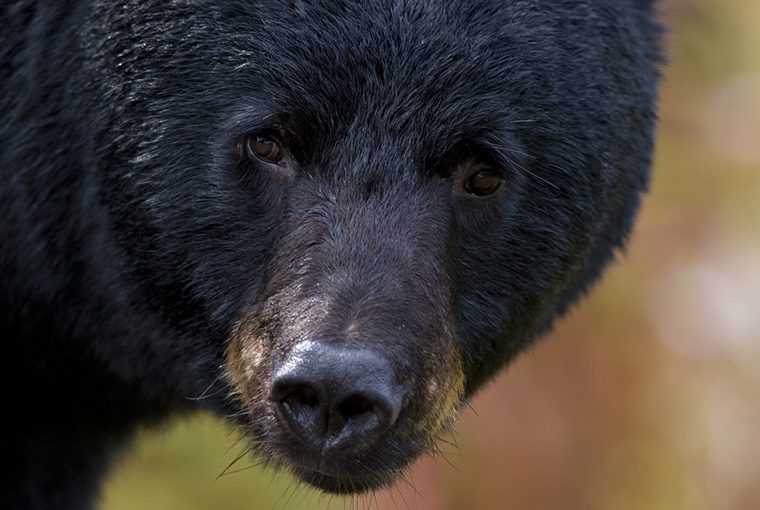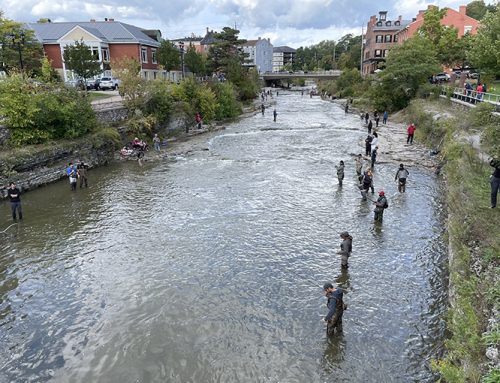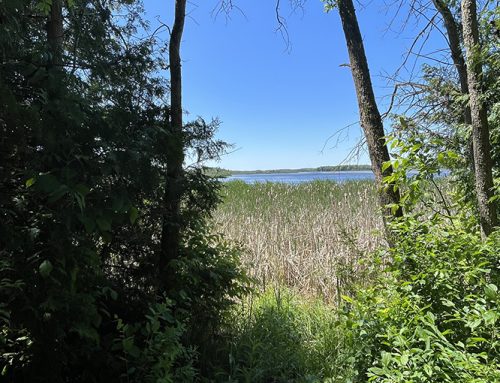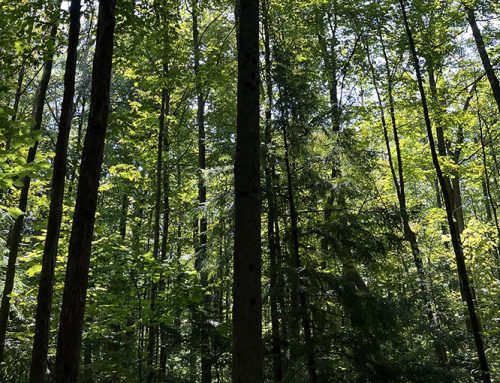
A 62-year-old American woman killed in a rare black bear attack was staying at a secluded island cabin in northwestern Ontario while attending a family reunion, according to provincial police.
Officers were called to Red Pine Island on Rainy Lake — just west of Sandpoint Island Provincial Park near the Canada-United States border — at approximately 6:30 p.m. Sunday (Sept. 1) when a woman reported her daughter was attacked by a bear after going to check on her dogs.
The dogs returned — including one that was bleeding from a puncture wound — but their owner did not, Rainy River District Ontario Provincial Police (OPP) media relations officer Const. Jim Davis said.
Bear was near body
First responders then found the woman’s body in the thick underbrush of a wooded area north of the cabin “in close vicinity to a bear,” police stated.
The yearling was then shot by officers, while two other bruins — a sow and another yearling — threatened officers during the investigation, Davis said.
The sow and other yearling remain at large, while the dead bear was moved to the University of Guelph for a necropsy, Ministry of Natural Resources and Forestry (MNRF) spokesperson Jolanta Kowalski wrote via email.
“Public safety remains our number one priority. We are actively searching for the other bears that demonstrated aggressive behaviour when OPP officers arrived on scene,” she stated.
Victim 10th person killed by bear
The victim was later publicly identified as Catherine Sweatt-Mueller of Maple Plain, Minnesota, a small city located about 32 kilometres west of Minneapolis.
The “unique incident” was the first kind Davis has seen in his 11 years of policing in the area.
“I haven’t heard of a bear killing a person… in the course of my duties,” he said.
Sweatt-Mueller is the 10th person to be killed by a bear in Ontario. The last bear-related fatality in the province was 14 years ago in Missinaibi Provincial Park, Kowalski confirmed. “Attacks of this nature are extremely rare and our hearts go out to the family and friends of the victim.”
There are no other residences on the island, and others who were on the island were made aware of the situation, police stated, pointing out there was no risk to public safety.
The MNRF is determining next steps, and will seek OPP assistance as needed, police added.
Citizens should call 911 or local police if a bear poses an immediate threat to public safety by exhibiting threatening or aggressive behaviour, Kowalski said.
A shared responsibility
Managing human-bear encounters is a shared responsibility of the province, municipalities, and residents, she said, pointing out that the ministry continues to work closely with local police services province-wide to protect public safety and educate communities on problem black bear issues.
“We also encourage residents to keep property free from attractants like garbage and bird feeders, and to use our Bear Wise program’s toll-free reporting line which is available 24 hours a day, seven days a week from the beginning of April to the end of November.”
Chronology of fatal bear attacks in Ontario
• September 1, 2019, Catherine Sweatt-Mueller, 62, of Maple Plain, Minnesota was killed on Red Pine Island on Rainy Lake in northwestern Ontario.
• September 6, 2005, Jacqueline Perry, 30, was killed in a predatory attack at Missinaibi Lake Provincial Park north of Chapleau.
• June 14, 1992, Sebastien Lauzier, was a Timmins student working on a mineral exploration team off a remote bush road 12.4 kms north of Lake Abitibi when he was killed.
• October 11, 1991, a bear killed Toronto couple Raymond Jakubauskas, 32, and Carola Frehe, 48, camped on Bate’s island in Algonquin Provincial Park’s Opeongo Lake.
• May 13, 1978, again in Algonquin, another bear killed and partially ate three boys from Petawawa.
• October 1, 1968, Jack Ottertail was killed while on a walk near Atikokan.
• The only other documented bear killing in Ontario was in 1881, when a trapped bear killed pioneer John Dennison on the Green Lake portage, just north of Bate’s Island, before the area became a park.
Source: MNRF/Ontario OUT of DOORS files






Leave A Comment